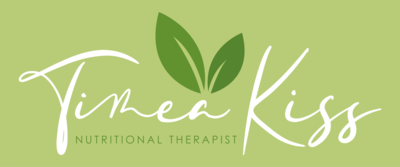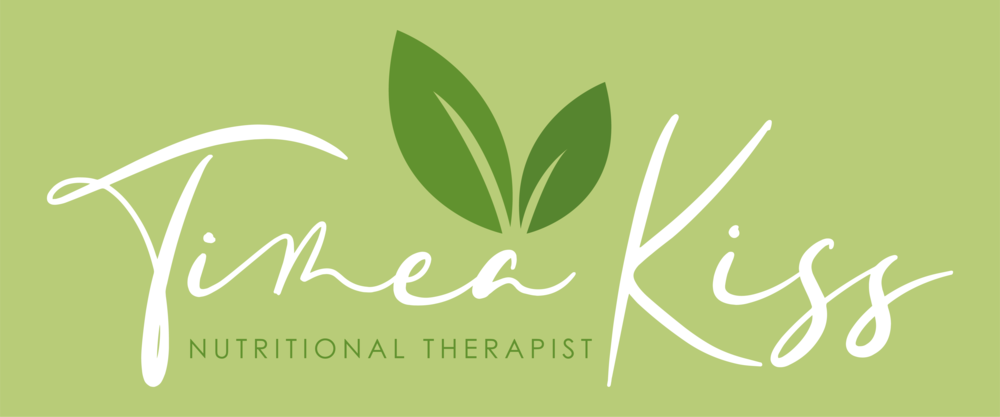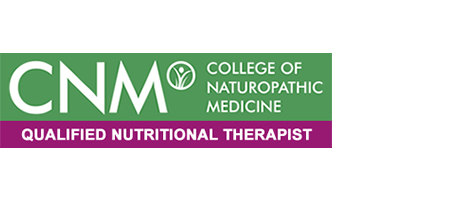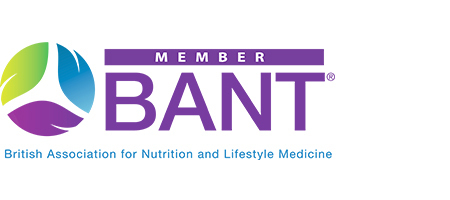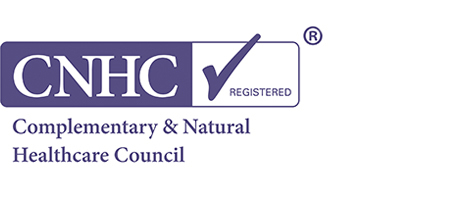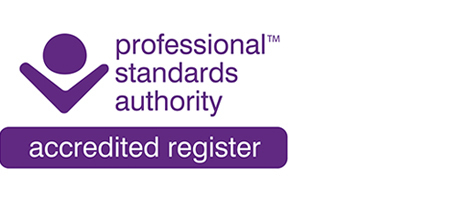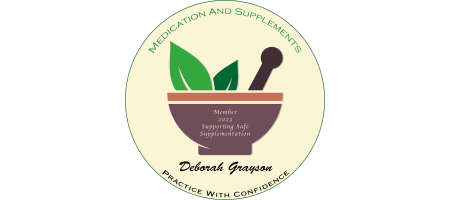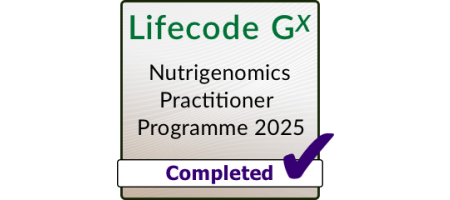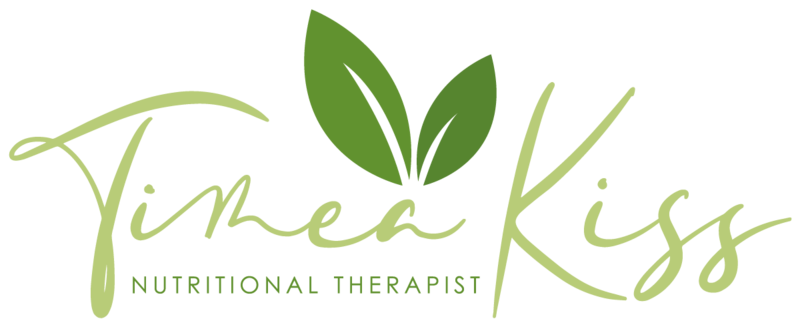The Dangers of Using AI as Your Nutritionist: Why Professional Guidance Matters
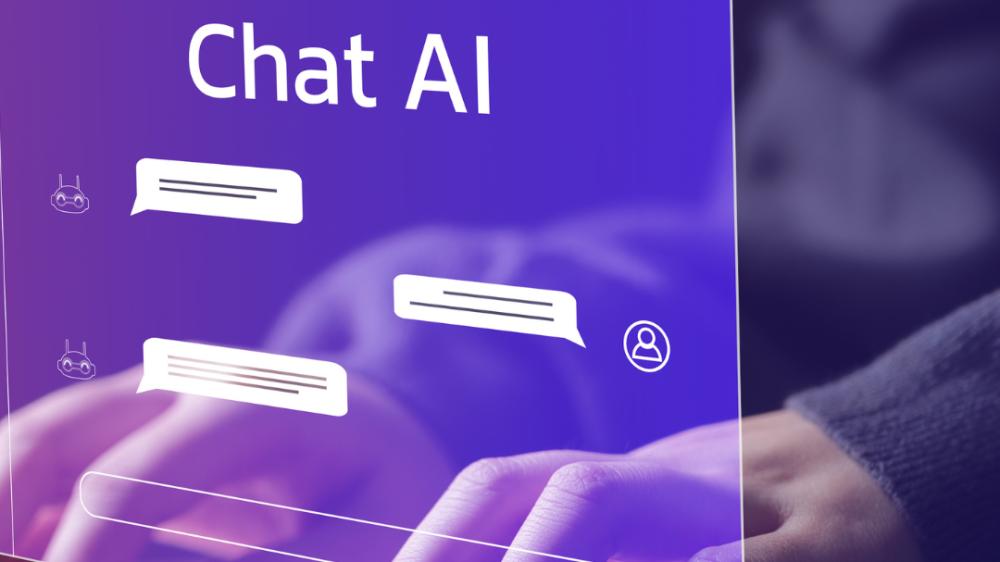
posted 1st July 2025

In recent years, AI tools like ChatGPT have made remarkable strides in providing quick, accessible information on a variety of topics, including nutrition.
However, while these tools can certainly offer some helpful general advice, they are not a substitute for the expertise of a registered nutritionist, particularly when it comes to understanding complex health issues and making personalised recommendations.
In this blog post, I’ll discuss why relying on AI for nutrition advice can be dangerous, especially for individuals without formal training in the field.
AI Can't Identify Underlying Health Issues
One of the most significant limitations of AI is that it cannot identify underlying health conditions. Nutrition is highly individualised, and recommendations need to be tailored to a person’s unique biology.
A professional Registered Nutritional Therapist or Functional Medicine Practitioner takes a comprehensive approach, analysing lab results, reviewing medical histories, and considering genetic predispositions, lifestyle factors, and current health challenges.
AI, on the other hand, relies solely on the data it has been trained on and cannot assess the nuances of an individual’s health. This can lead to generalised advice that may not be appropriate for someone with an undiagnosed condition or a specific set of symptoms.
For example, a person with thyroid issues or digestive disorders may receive generic advice about eating more fibre or taking certain supplements, when in reality, their symptoms might require a more nuanced dietary and supplement approach.
Lack of Understanding of Complex Physiologies
Nutrition is far from being one-size-fits-all. Our bodies are complex, and the way we metabolise food, respond to hormones, and process nutrients is influenced by many factors.
Registered Nutritionists and Functional Medicine Practitioners understand these complex systems, and they know how to tailor advice based on individual needs.
AI tools like ChatGPT might not fully grasp the intricacies of how certain foods or supplements interact with the body.
For example, someone with a compromised gut microbiome, food sensitivities, or an autoimmune condition may not be aware of how specific foods or supplements can exacerbate their symptoms. AI simply doesn’t have the capability to interpret these complexities and provide truly individualised guidance.
The Risks of Misleading Advice
While AI can provide broad suggestions for improving diet and lifestyle, it cannot replace the careful, personalised guidance that a trained professional provides.
Here are some ways AI can mislead individuals:
- Supplements Without Context: AI can suggest supplements based on broad patterns or popular trends. However, it doesn’t account for factors such as the potential interactions between supplements and medications, existing health conditions, or nutritional deficiencies.
For example, recommending a high-dose vitamin D supplement to someone on blood thinners or a person with kidney issues could have unintended consequences. A Registered Nutritionist, however, would carefully assess whether supplementation is needed and determine the appropriate dosage and form of supplementation (Yes, for example, Magnesium has many forms and each form has a different effect).
- Potential Drug Interactions: People who are on prescribed medications often fail to realise that certain supplements can interfere with their medications, leading to adverse effects. For instance, herbal supplements like St. John's Wort may interfere with antidepressants, and vitamin K can impactthe efficacy of blood thinners. AI lacks the expertise to evaluate potential drug-supplement interactions and might give advice that could harm individuals.
- Nutrient Imbalances: Nutrition isn’t just about adding in the “right” nutrients; it’s also about avoiding imbalances. Over-supplementation or inadequate nutrient ratios can lead to health problems. AI doesn’t have the ability to monitor nutrient levels in the body or adjust advice based on the real-time feedback a person might receive from their diet or lab results.
The Human Touch: Why AI Can't Replace Empathy and Coaching
One of the most critical aspects of working with a Nutritionist or Functional Medicine Practitioner is the human connection. While AI can provide information, it lacks the personal touch that is essential in fostering a supportive, motivating, and empathetic relationship. This is something that AI simply cannot replicate.
Nutrition isn't just about the science; it's also about understanding the emotional and psychological factors that play into someone's health journey.
A Registered Nutritionist listens to your concerns, celebrates your victories, and empathizes with your struggles. They provide the coaching and encouragement needed to help you stay on track, especially when faced with challenges or setbacks.
AI cannot replace the motivation that a human connection offers. A nutritionist is there to offer moral support, provide emotional reassurance, and help clients/patients work through the obstacles that come with making lasting changes to their diet and lifestyle. When clients struggle, having someone to talk to who understands their journey and can offer personalised advice based on their unique circumstances can make all the difference.
Understanding How to Ask the Right Questions
Another issue with using AI for health advice is that most people don’t know how to formulate the right questions, especially when it comes to complex topics like nutrition. Without formal training, it's easy to overlook critical details or misunderstand how certain recommendations may apply to your unique situation. AI is designed to answer questions based on how they are asked, but if those questions are incomplete or vague, the answers will be too.
For example, someone asking about “healthy eating” may get a generic response about eating more fruits and vegetables, but they may not be aware of the types of fruits and vegetables that could aggravate their digestive issues or interfere with medications they are taking.
The Dangers of Following AI Advice Without Professional Oversight
While AI tools can provide broad nutrition information, they do not have the ability to monitor and adjust advice based on feedback or ongoing health changes. A Registered Nutritionist works with clients to regularly assess their progress, adjust their protocols, and ensure that the recommendations they provide continue to support optimal health.
For example, if a client starts a new supplement regimen and experiences adverse effects, a Registered Nutritionist can evaluate whether the supplements are the right choice or if adjustments need to be made. AI doesn’t have that capability. Following AI advice without professional oversight could result in individuals continuing with ineffective or even harmful strategies.
Why Professional Nutrition Guidance is Crucial
As a Registered Nutritional Therapist, Nutrigenomics Specialist, and Functional Medicine Practitioner,I cannot stress enough the importance of personalised, professional advice when it comes to your health.
Trained practitioners can:
- Conduct thorough assessments of your health history, genetics, and lifestyle.
- Interpret lab results to uncover hidden health issues.
- Provide customised dietary recommendations that suit your unique biology.
- Ensure supplements and dietary changes are safe, effective, and appropriate for your individual health needs.
- Monitor your progress and adjust your plan as needed to achieve lasting health improvements.
AI is a powerful tool that can offer general nutrition advice, but it cannot replace the expertise, personalised care, and human connection offered by a trained professional.
For individuals with complex health issues, a trained nutritionist’s guidance is crucial in ensuring that dietary and supplement recommendations are appropriate, safe, and tailored to their specific needs.
Don’t risk your health by relying on AI to make decisions that could impact your well-being. Seek out professional support for a truly individualised and effective approach to nutrition.
The human touch, the empathy, and the coaching that a professional can provide are irreplaceable, and they are often the key to lasting success in your health journey.
Your health is too important to leave to chance or generalised advice from an AI tool.
If you're ready to receive personalised, expert guidance tailored to your unique needs, let's work together to create a nutrition plan that supports your long-term well-being.
As a Registered Nutritional Therapist, Nutrigenomics Specialist, and Functional Medicine Practitioner, I am here to guide you through the complexities of your health and help you achieve optimal results.
Don’t settle for guesswork when it comes to your health Book a free 30-minute consultation with me today and take the first step toward a healthier, more vibrant you.
Timea Kiss
Registered Nutritional Therapist - Nutrigenomics Specialist - Functional Medicine Practitioner
